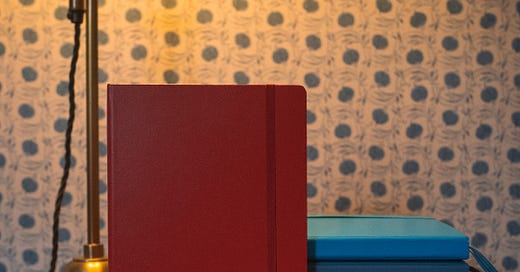A new way of seeing: where to begin when analysing a novel
Tips on taking notes, and where to look for your evidence
This post is the second instalment of a course I’m currently running for paid subscribers called How to Read and Analyse a Novel. For full introductory details, start here. You can adjust your notification settings here if you would like to opt out of these emails.
Great novels are full of the complexity of life, and it would stand to reason that analysing them should be an equally complex process. But in reality this needn’t be the case. I think there are a lot of smoke and mirrors around literary analysis—only great scholars can do it well, or you need to have a wealth of contextual information to even make a start. But really, it is a fairly simple set of tools. You need to know how to look, where to look, and then you need lots of practice.
Making an argument
I belatedly realised last week that the questions and themes I assigned to each of the books were pretty intense, especially if you are a beginner to all this. But there was logic, I promise!
When you analyse a book—whether you’re writing an essay about it or not—you are essentially always crafting an argument about it. This is what we touched on last week: analysing is getting in conversation with the book. And when you have finished your initial analysis, you should have some cohesive idea of what the book is saying and doing—this is your argument!
Say you love a book and encounter someone who hates it. You need evidence to back up why you like it, to argue your point! And this evidence needs to make rational sense altogether. While most readers might come to a decision about whether a book is good or bad, we want to go a bit further: how does this book fit into the world as we know it? Where does it falter, where does it excel?
This is why I’ve structured those questions in the way that I have. The brilliance of the singular question is that it’s prompting you to craft a very specific argument, to argue with it (and I do intend you to challenge some of those statements if that makes sense to you!) And by keeping focus on just one theme, we should be able to push into some of the lesser-used arenas of analysis.
I also worded them rather formally and abstractly. This is actually to give you more scope. You can interpret things multiple different ways.





